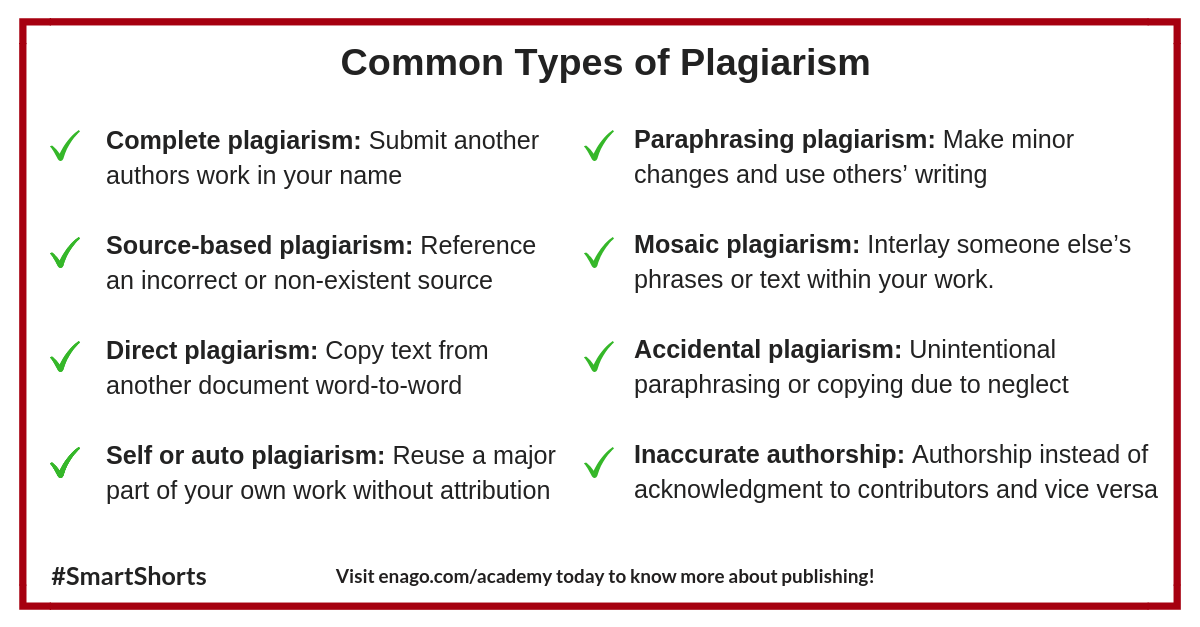7 Simple Techniques For What Is Considered Plagiarism And How to Avoid It - Southern


4 tips to avoid accidental plagiarism

Cardinal Stritch University Library - Avoiding Plagiarism
Fascination About plagiarism - Wiktionary
Using another author's work as if it was one's own initial work Plagiarism is the representation of another author's language, ideas, ideas, or expressions as one's own original work. In educational contexts, there are differing definitions of plagiarism depending upon the institution. Plagiarism is considered an infraction of academic stability and a breach of journalistic principles.
Just recently, cases of "extreme plagiarism" have been determined in academia. Normally, plagiarism is not in itself a crime, however like counterfeiting fraud can be penalized in a court for bias caused by copyright infringement, offense of ethical rights, or torts. In academia and market, it is a severe ethical offense.

Some Ideas on What is not plagiarism? - SUNY Broome - Library You Need To Know
Plagiarism may not be the same in all nations. Some nations, such as India and Poland, think about plagiarism to be a criminal offense, and there have been cases of individuals being sent to prison for plagiarizing. In other instances, plagiarism may be the total reverse of "academic dishonesty"; in fact, in some countries the act of plagiarizing a professional's work is viewed as flattering.

3 Ways to Detect Plagiarism - wikiHow
Etymology and ancient history [modify] In the 1st century, the usage of the Latin word "plagiarius" (literally "kidnapper") to signify stealing somebody else's imaginative work was originated by the Roman poet Martial, who complained that another poet had actually "kidnapped his verses". https://seopursuits.com/plagiarism-checker-pro , a derivative of plagiarus, was presented into English in 1601 by dramatist Ben Jonson throughout the Jacobean Era to describe somebody guilty of literary theft.
Excitement About Essay Checker: Spot Accidental Plagiarism with our - BibMe
The Latin plagirius, "abductor", and plagium, "kidnapping", have the root plaga ("snare", "net"), based on the Indo-European root *-plak, "to weave" (seen for example in Greek plekein, Bulgarian "" pleta, and Latin plectere, all suggesting "to weave"). It is often declared that individuals in antiquity had no principle of plagiarism, or at least did not condemn it, and it only happened viewed as unethical much later, anywhere from the Age of Knowledge in the 17th century to the Romantic motion in the 18th century.
